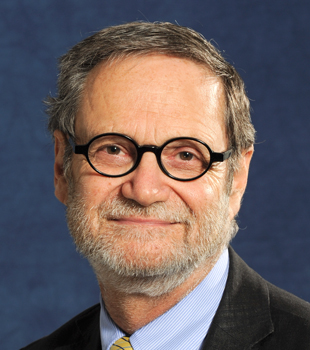By Dr. Howard Bergman
 There is no doubt that primary care is at a crossroads in Quebec. In 15 years there has been a major paradigm shift in clinical care, that recognizes family medicine as the point of first (and often only) contact for the population. A health system that works for an aging population with more chronic disease needs to prioritize primary care.
There is no doubt that primary care is at a crossroads in Quebec. In 15 years there has been a major paradigm shift in clinical care, that recognizes family medicine as the point of first (and often only) contact for the population. A health system that works for an aging population with more chronic disease needs to prioritize primary care.
Yet, this year has been challenging and unsettling in many ways for those involved in primary care in Quebec with Law 10, Law 20 and the last minute compromise with the FMOQ, as well as 2 new management frameworks that are not widely known to the public. We have yet to understand the full impact of these policy changes on the practice and the teaching of family physicians and more importantly on the quality of patient care.
Successful policy and its implementation require developing a shared vision in the population and among those working in the front lines. Successful implementation also requires iterative improvement through accountability and population input. Yet, in spite of the importance and the intensity of the primary care reforms, there has been essentially no attempt to engage the population and the stakeholders leading many experts and stakeholders calling for open, non-partisan and respectful public policy discussion on the healthcare reform.
This is why the McGill University Department of Family Medicine is hosting a major policy symposium on Friday May 6, 2016: “Towards a common vision for primary care in Quebec”. Partnering with the McGill Institute for Health and Social Policy, the St. Mary’s Research Centre of the CIUSSS DE L’OUEST-DE-L’ÎLE-DE-MONTRÉAL, the McGill faculties of Medicine and Dentistry, the McGill School of Nursing and RUIS McGill, the goal of the symposium is to contribute to the development of a comprehensive vision and roadmap for primary care in Quebec through engagement with the public, including patients, health care professionals, health system managers, students and residents, as well as key decision makers in a discussion on key ideas and strategies that should underpin the future of primary care in Quebec. The results of the conference will be synthesized and used to prepare a white paper on the vision and roadmap for primary care to be presented for wider public policy discussion.
The idea of the symposium has already generated a great deal of interest. In fact, the 300-seat venue has been completely sold out with additional participants joining by webcast. We are particularly excited that a third of the participants are medical students, family medicine and other specialty residents, as well as MSc and PhD students. Our future practitioners, professionals and academics recognize that they have a real stake in designing their futures.
You can also join the conversation on May 6th by following us on Twitter @McGillFammed, or #McGillFamSymp, or check out our website (…) where we will be posting a summary of the events and other materials.
It is fitting that this year, the Department of Family Medicine at McGill celebrates its 40th anniversary. Over the past four decades, the Department of Family Medicine has grown from one of the smallest academic departments in the Faculty of Medicine at McGill, to the largest. Every year we train 200 residents in 6 university family medicine centers across the province (based in Montreal, Gatineau, Chateauguay and Val D’Or), treating diverse communities and patient populations with a total of over 100,000 registered patients. Our research and graduate study programs also reflect this commitment to improving the health of the population and our healthcare system through a community and patient-centered approach. We are excited to celebrate this milestone with an exercise that exemplifies the heart of family medicine: reflecting on actions that take us from evidence-informed practice to policy, and back again, to collectively co-design our future.
May 4, 2016
